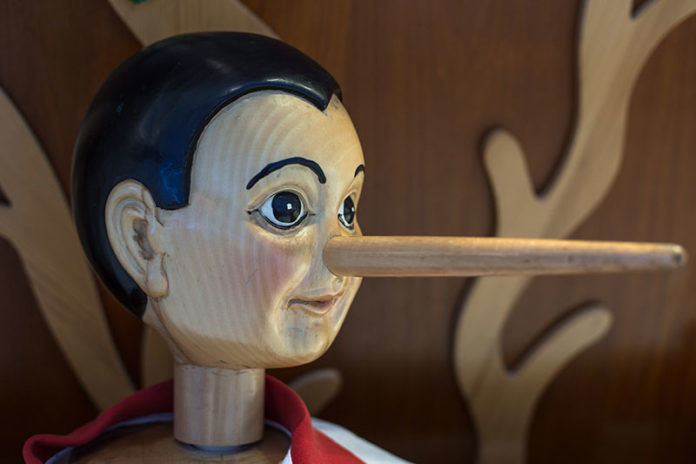Trump Is a Victim of His Own Dishonesty: Lying Is Not the Best Strategy When You’re Trying to Convince People You’re Telling the Truth
For two years, Donald Trump told us the truth over and over again: Neither he nor his presidential campaign illegally conspired with Russian agents to influence the 2016 election. But Trump also lied to us over and over again, which cast doubt on his assertions of innocence.
I was never much impressed by the evidence of “collusion” between the Trump campaign and Russia, an allegation that was conclusively debunked by special counsel Robert Mueller’s report, which was released by the Justice Department last Thursday. The one thing that made me think there might be something to the conspiracy theory was the fact that Trump kept denying it.
The president’s habitual dishonesty justifies a rebuttable presumption that the truth is the opposite of whatever he says. That rule of thumb led many of his critics astray in this case, but it also illustrates the practical advantages of telling the truth, as Trump’s weaselly ways prolonged the Russia investigation and lent credence to the suspicion that he had something to hide.
“I have nothing to do with Russia,” Trump insisted in July 2016. Yet, his lawyer, Michael Cohen, was working on a licensing deal for a Trump Tower in Moscow as late as the previous month and giving his boss regular updates on the project. When Cohen suggested to Trump that his statement was misleading (he told Mueller), Trump replied, “Why mention it if it is not a deal?”
A year later, when The New York Times reported that Trump’s son, son-in-law and campaign chairman had met in June 2016 with a Russian lawyer promising “dirt” on Hillary Clinton, Trump edited a public statement about the meeting, excising any reference to that offer. When his communications director, Hope Hicks, suggested that Trump come clean about the motivation for the meeting, he told her, “You’ve given a statement. We’re done.”
When Trump fired James Comey in May 2017, angry that the FBI director had refused to publicly say he was not a target of the Russia investigation, Trump claimed he had acted based on a recommendation from Deputy Attorney General Rod Rosenstein, who had decided “on his own” to review Comey’s performance. As the Mueller report notes, Trump abandoned that preposterous cover story two days later, but only because Rosenstein refused to go along with it.
When Comey said the president had privately pressed him for a promise of personal loyalty and encouraged him to drop the FBI’s investigation of former national security adviser Michael Flynn, Trump flatly denied Comey’s account of those one-on-one conversations, even implying he might have “tapes” that would show Comey was lying. The Mueller report accepts Comey’s account, which is supported by documentation of the meetings, a memo that Comey wrote at the time, and his contemporaneous conversations with other officials.
The report likewise credits former White House counsel Donald McGahn’s testimony that Trump repeatedly asked him to fire Mueller. Trump publicly denied he said any such thing, and he privately urged McGahn to recant his statements about those episodes.
The Mueller report also addresses the 2016 hacking of embarrassing emails from the Democratic National Committee and Clinton’s campaign chairman, which were published by WikiLeaks, much to candidate Trump’s delight.
Politico counted more than 140 occasions when Trump praised WikiLeaks during the campaign. Yet after WikiLeaks founder Julian Assange was arrested this month, Trump claimed, “I know nothing about WikiLeaks. It’s not my thing.”
The report does not discuss the hush payments that Cohen arranged for women who claimed to have had affairs with Trump, a case that was referred to the U.S. attorney in Manhattan. But Trump lied about those, too, claiming he had no knowledge of them at the time.
Trump’s lawyers wisely rebuffed Mueller’s attempt to follow up on the president’s evasive responses to written questions and stopped him from sitting for an interview. Trump thereby avoided a “perjury trap” that he would have walked into just by being himself.































